Delta Conference 2019: The next big thing will be a lot of small things
‘When the water will come.’ With those words, Zeeland resident Ms Ria Geluk, a survivor of the 1953 flood disaster, opened the tenth Delta Conference in the Dutch city of Goes. ‘People should be aware of the power of water.’ Ms Ria Geluk asked the audience what they would do when the water would come and urged for raising awareness. Thus, at a few minutes before 11 A.M., the conference was off to an affecting start in a hall filled to capacity. More than 1500 delegates attended the Delta Conference 2019 in Goes today. This year’s conference was the first to be held under the auspices of Delta Programme Commissioner Peter Glas.
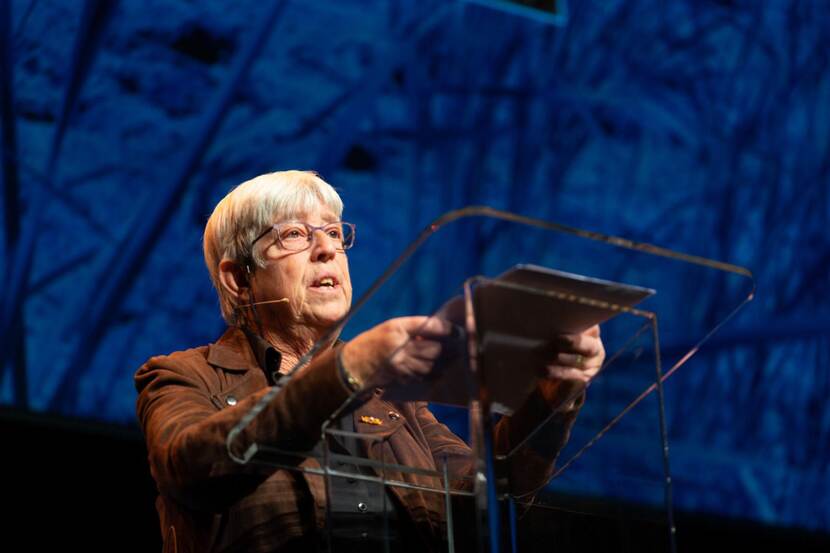
Peter Glas looked back on his first year as the Delta Programme Commissioner and looked ahead. The Delta Programme review is one of the main taskings for the years to come. With day chair Frank du Mosch, he discussed the increasing weather extremes and how the Delta Programme helps to prepare for such conditions. The potential acceleration in sea level rise was addressed extensively, as were the more frequent and longer periods of drought. Another topic involved the emergency act that the Cabinet announced yesterday. ‘The emergency act is vitally important for the dyke improvement tasking that is facing us, and it testifies to the existential importance of flood risk management to the Netherlands.’
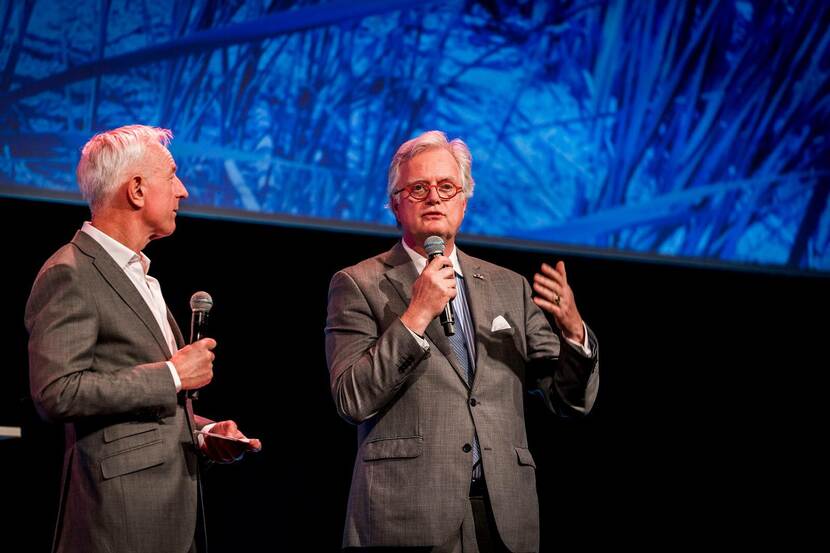
Ms Lidewijde Ongering, Secretary-General of the Ministry of Infrastructure and Water Management, spoke on behalf of Minister Cora van Nieuwenhuizen, who was due to address the House of Representatives. The Secretary-General reviewed the adaptive capacity of the Delta Programme, current and future developments, and how we should prepare for them. She concluded her speech by stating: ‘We are the safest delta in the world, and we are keen to remain so. Lest we ever be taken by surprise again.’
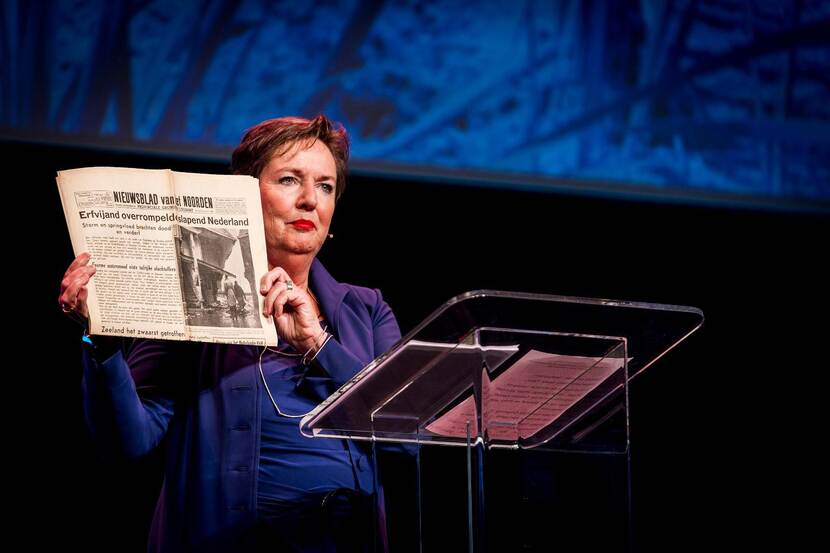
The keynote speaker was engineer-architect Joachim Declerck of Architecture Workroom Brussels (AWB). During his presentation, entitled “The next big thing will be a lot of small things”, he inspired the audience to develop new practices. ‘We need a moonshot,’ according to the keynote speaker of the day. ‘In order to keep what we have, we need to change everything,’ Mr Declerck stated.
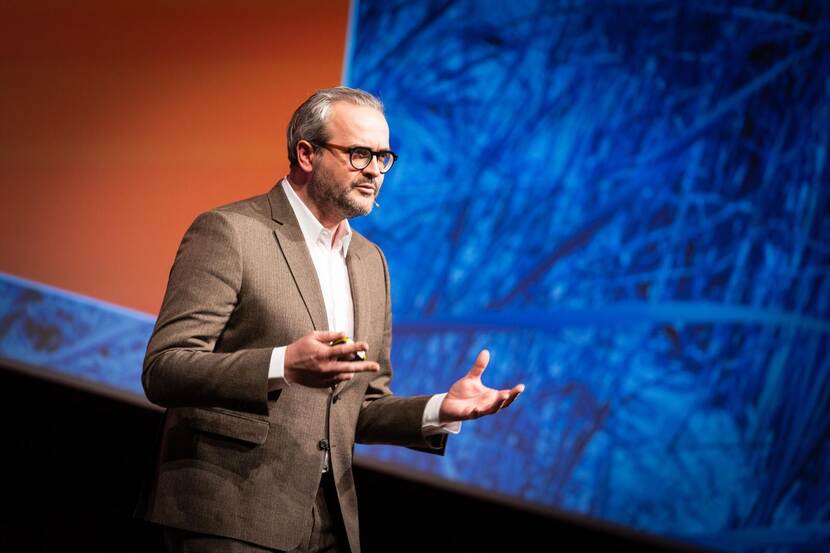
As in previous years, the representatives of the umbrella organisations participated in the plenary sessions. On behalf of the Association of Netherlands Municipalities VNG, Rijkswaterstaat, the Association of Dutch Regional Water Authorities UvW, and the Association of Provincial Authorities IPO, delegates Ed Anker, Michele Blom, Rogier van de Sande and Bert Boerman entered into a discussion with day chair Frank du Mosch on the issues covered by the Delta Programme: flood risk management, freshwater availability, and spatial adaptation.
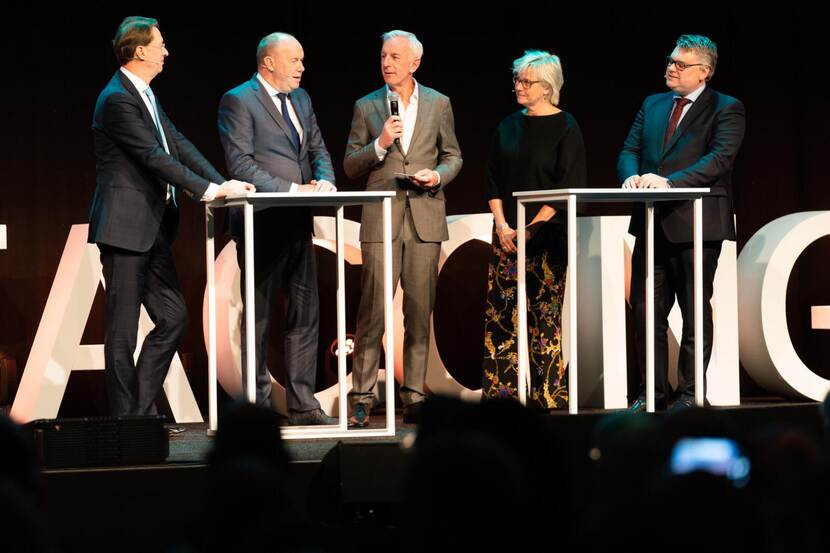
Parallel sessions
In addition to many well-attended sub-sessions, speed dates, and a comprehensive Delta Parade featuring 35 booths, the visitors could participate in a number of major substantive parallel sessions. In the parallel session on the rising sea level, the more than 600 participants were brought up to date on the Sea Level Rise Knowledge Programme. Mr Rob Dorland of the Royal Netherlands Meteorological Institute KNMI explained the SROCC report that was published in September, and representatives of the Flemish government reported on how our southern neighbour is tackling this issue. In the parallel session on drought, extensive attention was paid to water retention in the soil, combating salinisation, and collaboration with farmers. The parallel session on the Delta Plan on Spatial Adaptation, which is in progress, focused on 2020 as the year of the risk dialogue. A sneak preview was presented of the roadmap to be completed by December 2019. The session on the spatial adaptation of cities revolved around the question of how residents can be involved in major issues. Attention was also paid to disaster control, multi-layer flood risk management, and the protection of vital and vulnerable functions.
The spotlight
Every year, the Delta Programme Commissioner turns the spotlight onto a Delta Programme individual or project. This year’s spotlight award went to the Future-proof North Sea Canal – Amsterdam-Rhine Canal Project, a project that is still awaiting the go-ahead and which addresses flood risk management, freshwater supply, and spatial adaptation from an interconnected and supra-regional perspective. According to Delta Programme Commissioner Peter Glas, who presented the award, this project will set the agenda for the future pumping capacity requirements near IJmuiden and water management in Central Holland.
Sustainability
Sustainability is a key topic within the Delta Community. This year’s Delta Conference also pursued sustainability, climate neutrality, and circularity wherever possible. For example, a solar train and fuel-efficient buses to the Zeelandhallen conference venue encouraged participants to opt for public transport. The catering was 100 per cent organic and consisted largely of local products. Tap water was served and 75 per cent of the lunch dishes were vegetarian. The cups, plates, and cutlery were biodegradable, and at the end of the conference the left-over lunches were available for the participants to take home.
Photos: Valerie Kuypers, Martijn Beekman.